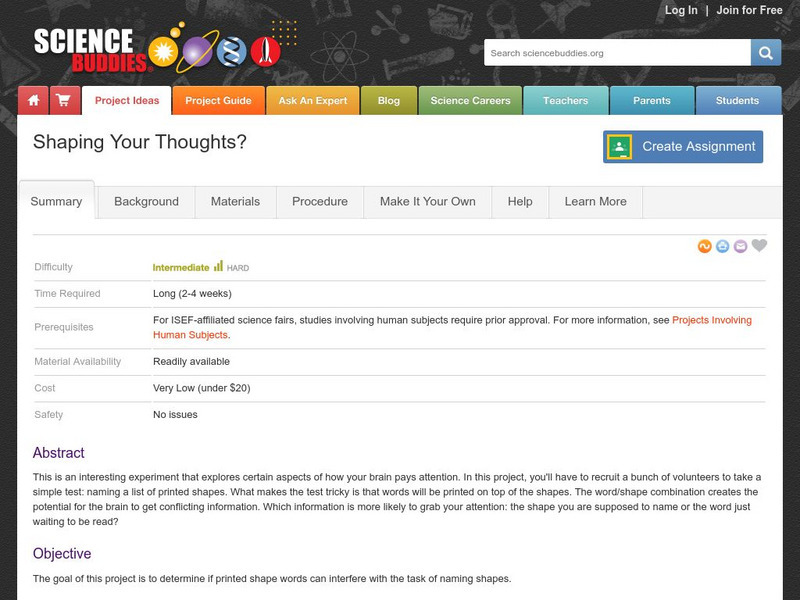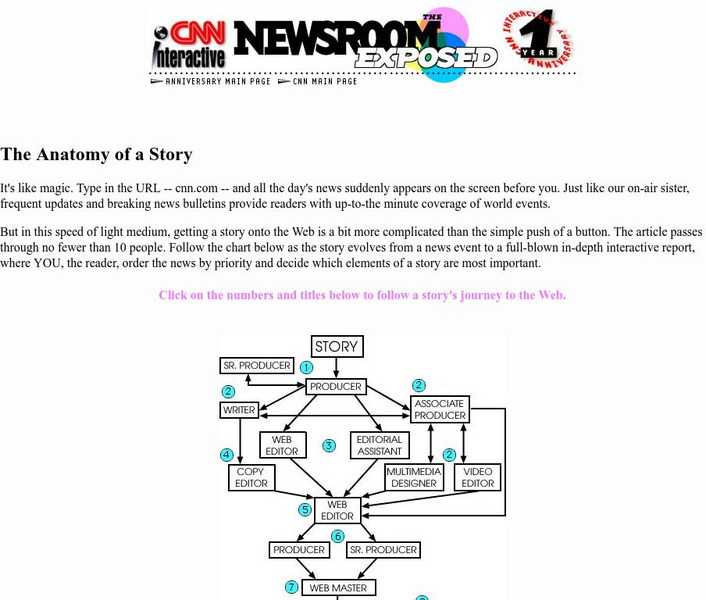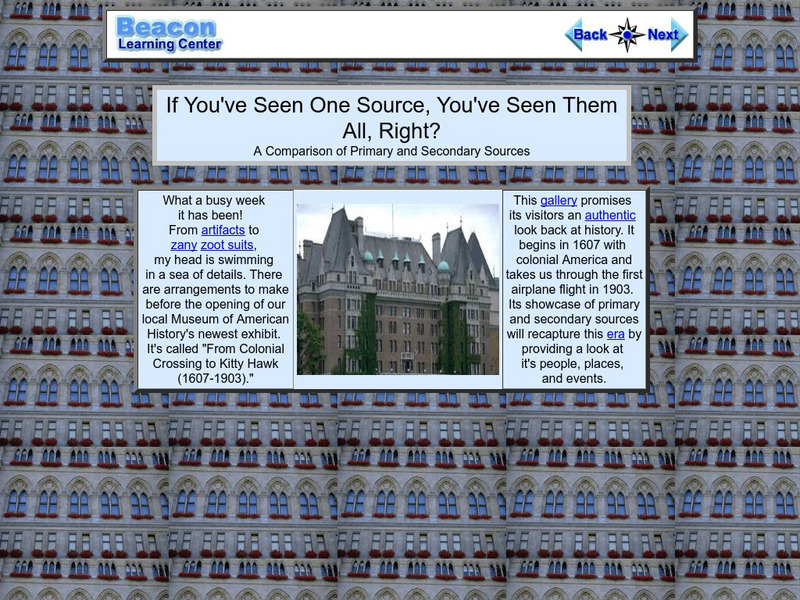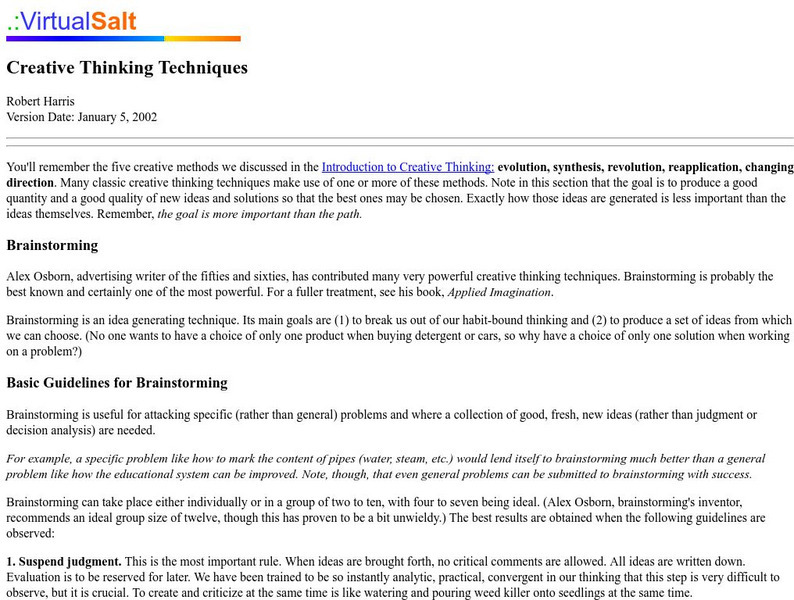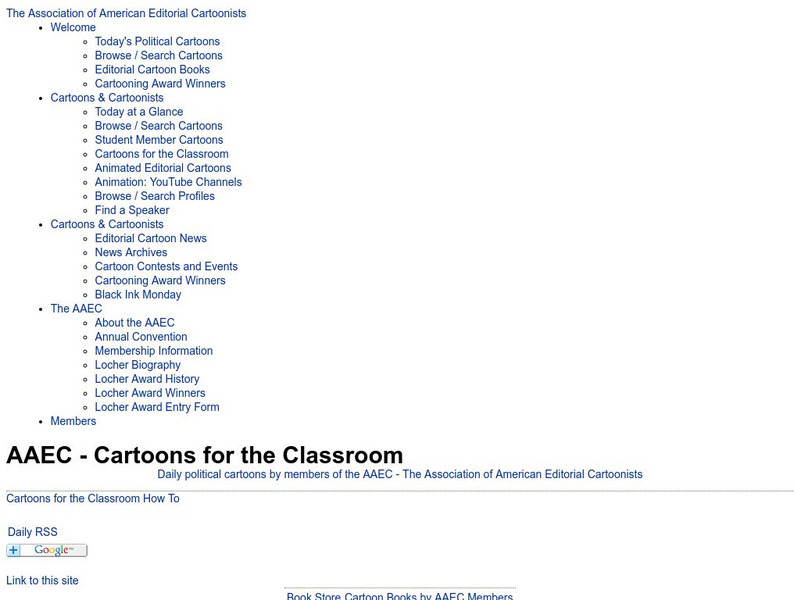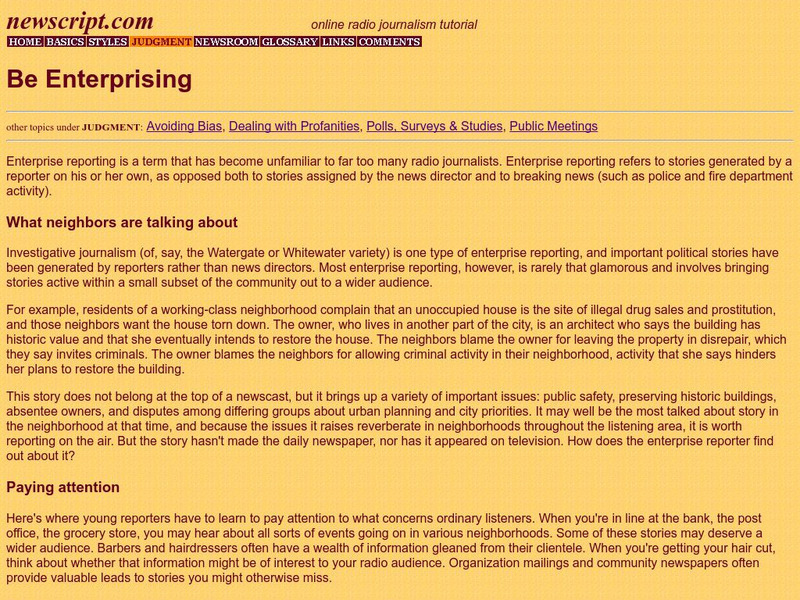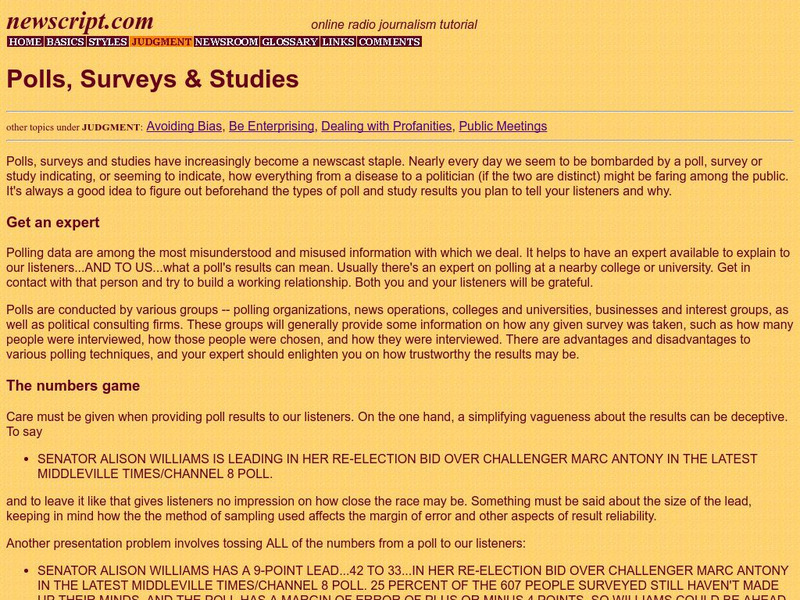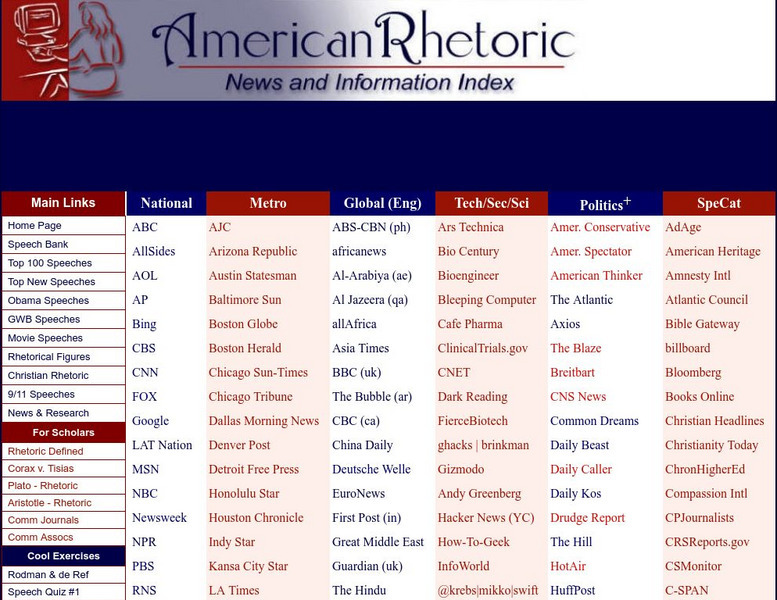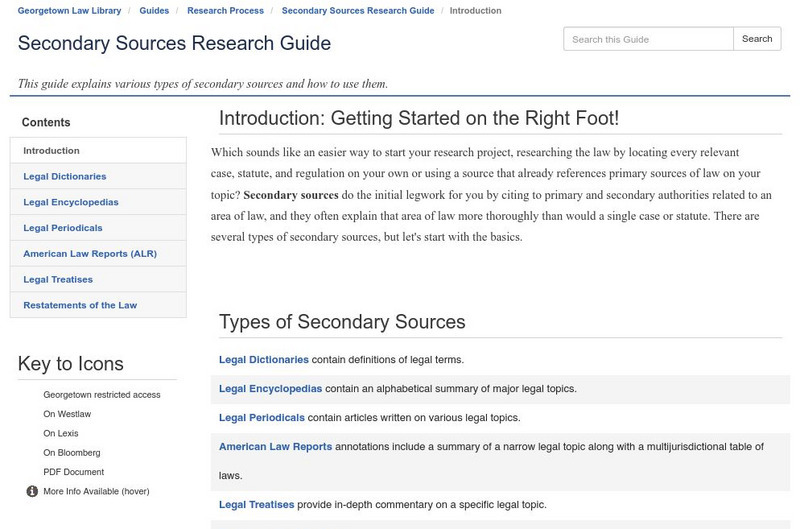PBS
Pbs Learning Media: Your Brain and Moral Decision Making
In this segment from Curious, scientists conduct an experiment to learn how different areas of the brain are stimulated when making moral decisions.
PBS
Wnet: Thirteen: Concept to Classroom :Tapping Into Multiple Intelligences
This site contains a wealth of information on Gardner's theory of multiple inteligences. It discusses what it consists of, the difference between it and the traditional definition of intelligence, how it has developed since its...
Science Buddies
Science Buddies: Shaping Your Thoughts?
This is an experiment that explores certain aspects of how your brain pays attention. In this project, you'll have to recruit volunteers to take a simple test: naming a list of printed shapes. What makes the test tricky is that words...
CNN
Cnn: Anatomy of a Story
A fun interactive site for finding out what happens in all departments of a broadcast newsroom.
Beacon Learning Center
Beacon Learning Center: If You've Seen One Source, You've Seen Them All. Right?
This is a tutorial teaching the difference between primary and secondary research sources. It provides specific examples and asks students to answer questions along the way. Java is required.
BioEd Online
Bio Ed Online: Smarter Choices
In this lesson plan students will learn how to make informed decisions based on evidence. Working in groups, they answer a set of questions that enable them to identify and make a decision for a character in a complex, real-life...
PBS
Pbs: Secrets of the Mind: Probe the Brain
Curious about how our brain works? Canadian Dr. Penfield was the first to map the cortex of the brain. Use this interactive site to recreate the exploration of the brain.
ProCon.org
Pro Con: Drinking Age
Pro and Con argument lesson on the appropriate drinking age. Students can read background information, pro/con text, view videos on the topic, and explore links to related resources.
Virtual Salt
Virtual Salt: Creative Thinking Techniques
Site provides information to help with generating ideas that would assist in group decision making. Detailed and thorough account.
Newspapers in Education
Ni Eonline: Cartoons for the Classroom: Lessons Library
Newspapers in Education and the Association of American Editorial Cartoonists publish simple, inventive lesson plans and ideas for classes in editorial cartooning, caption writing, and news analysis. Lessons include "cartoon blanks" that...
Other
Newswriting for Radio: News Judgment: Be Enterprising
This is a fabulous site for all of those wanting to pursue a career in broadcast journalism. You can find tons of tips on how to be a better journalist and how to find a great story.
Other
Newswriting for Radio: News Judgment: Polls, Surveys, and Studies
So you want to be a great broadcast journalist? You should take a look at this site! It offers tons of info and pointers on radio journalism.
Other
Usc Annenberg: Online Journalism Review
A review of journalistic issues and news, the OJR covers journalism worldwide, especially in cyberspace.
Other
All Psych: Chapter 5: Section 3: Perception
Through studying the sensory system this article will help learners evaluate the power of perception through visual sensation.
American Rhetoric
American Rhetoric: News and Information Index
This website is a news and information index that offers links to news sources, newspapers, magazines and journals, search engines, polling data, legal resources, and citation guides.
University of Maryland
Department of Sociology: Polls Take Commanding Lead in Politics, Business
Article presents a useful discussion on the basics of public opinion polling, problems with the polling process, sources of public opinion data and tips for consumers.
ReadWriteThink
Read Write Think: Discovering Memory Li Young Lee's Poem "Memonic" and the Brain
Contains plans for eight cross-curricular lessons that teach about memory and the brain using Li-Young Lee's poem "Mnemonic." In addition to objectives and standards, this instructional plan contains links to PDF handouts and sites used...
Loyola University Chicago
Loyola University: Gender Differences in Cognitive Functioning
Summarizes the results of several studies that have looked at differences in cognitive functioning between males and females.
US Department of Education
National Center for Education Statistics: Family Reading to Young Children
Short summary of statistics that show that reading to young children makes them more prepared for school and that families in lower socio-economic situations read to the children less than families in other economic levels.
DOGO Media
Dogo News: Researchers Believe Gamers Are Able to Learn Faster
Article reports on studies examining the differences between games and non-gamers to perform certain visual tasks. Includes video.
DOGO Media
Dogo News: "Mad Minute" Tests Could Make You a Math Whiz
How well do you know your addition and subtraction facts and multiplication tables? In this article you'll learn what brain studies show about the value of memorizing and using such fact sets.
Georgetown University
Legal Research Guides: Secondary Sources Research Guide
This tutorial discusses how to perform legal research in a library--from locating relevant cases, statutes, and regulation to using secondary sources that include Periodical Indexes, Treatises, Legal Encyclopedias, and Annotated Law...
Other
First Amendment Center: Freedom Forum, Newseum
This First Amendment Center "newseum" offers dozens of reports, articles, papers, and pages collected by the Freedom Forum. Includes today's news as well as archives.
New York Times
New York Times: Evaluating Sources in a 'Post Truth' World: Fake News
[Free Registration/Login Required] Need help determining fake news from real news? This seems to be a problem today. Find practical activities and questions to help navigate a media landscape in which it is increasingly difficult to tell...




